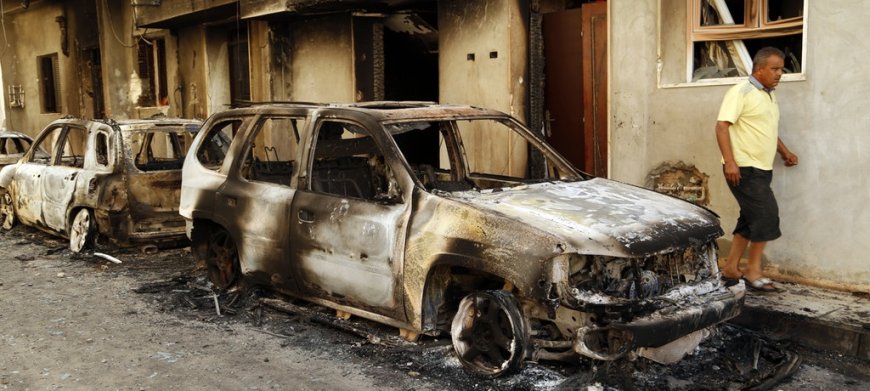Libya is torn
Libya is torn

Libya is torn in two, militias are fighting for power without being able to win this fight. The people in the country are all the more longing for peace and are trying to preserve some remnant of normalcy. Amal Delawi whirls through her kitchen. Gradually she fills dates with Nutella, dips them in a pot full of liquid chocolate and then decorates them with whipped cream and sprinkles: The self-employed entrepreneur's specialty is ready.
With the sale of these chocolate dates, the 49-year-old made a name for herself in her Libyan hometown of Tripoli and successfully established herself in a business world that is still dominated by men. "Many men find it difficult to do business with a woman. Once I come across as a strong personality and try to get the best price and quality, it comes as a shock to men." She markets her dates from home via social media. A few years ago she had her own small candy shop in the old town, but had to close it because of the war. One day it was quiet, sunny and wonderful to walk in the Libyan capital, "the next day shots were fired and militias were fighting because of something stupid that we have nothing to do with," says Delawi.
Libya is divided into West and East. In the west, around Tripoli, Prime Minister Hamid Dbaibah rules. The East also has a Prime Minister: Fathi Baschagha, behind whom stands the powerful General Khalifa Haftar. Both Dbaibah and Baschagha do not recognize the other, and both have influential allies abroad. Dbaibah is considered the point of contact for most countries in the European Union, including on issues of migration and energy policy. In late January, Italy's far-right Prime Minister Giorgia Meloni traveled to Tripoli, signed deals to develop two gas fields and promised five new speedboats for the Libyan Coast Guard to intercept migrants crossing to Europe. Turkey and Qatar are also considered close allies of Dbaibah.
The balance of power in East and West secures militias and foreign mercenaries. According to the United Nations, a total of around 25,000 foreign mercenaries are deployed on Libyan soil. Some fight for the West, mostly financed by Turkey. Others fight for the East, many get their money from the United Arab Emirates and Russia. Since the Libyan state hardly offers young Libyans any prospects, many young people join the militias. "In my generation, we hardly dare to have big dreams, to start a company or anything like that," says Ali Obeid, 24 years old . "It's difficult to study for years and then you end up without a job. You can't plan your future like that." Now she occasionally helps her mother with social media shots, holds the camera and posts the chocolate dates on TikTok. Mother and daughter have one wish: they want to choose.













































